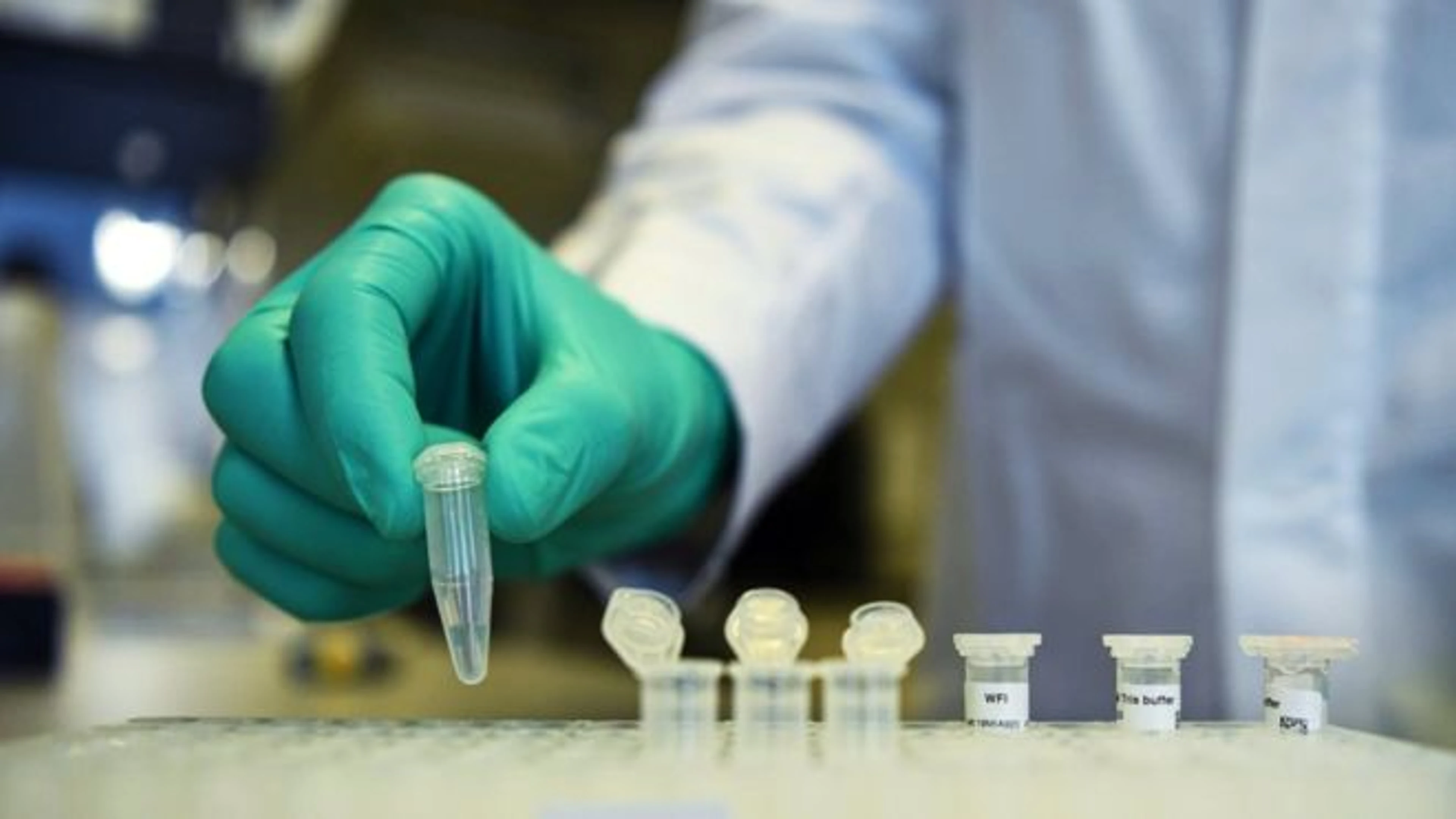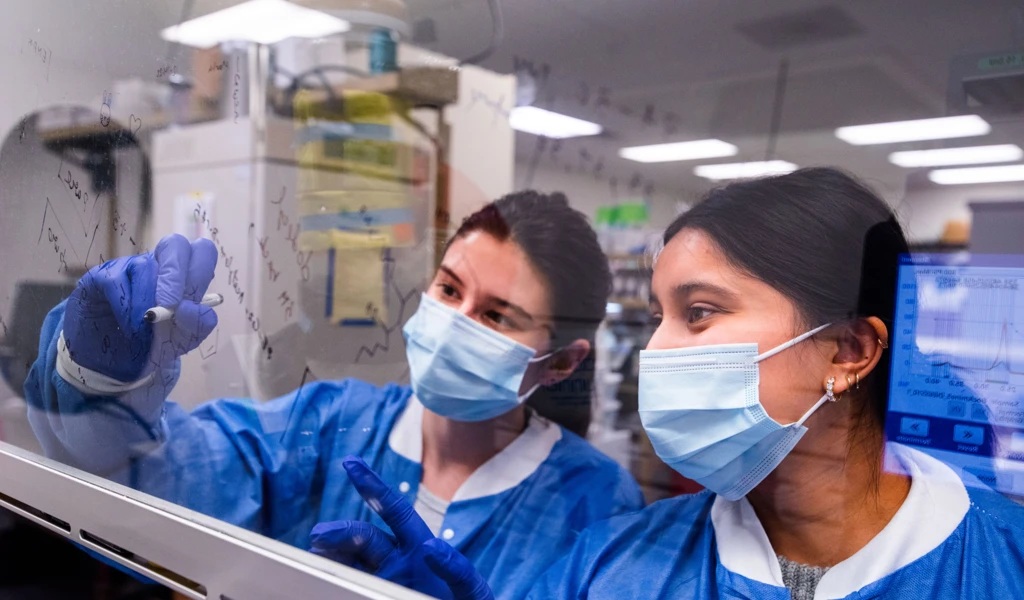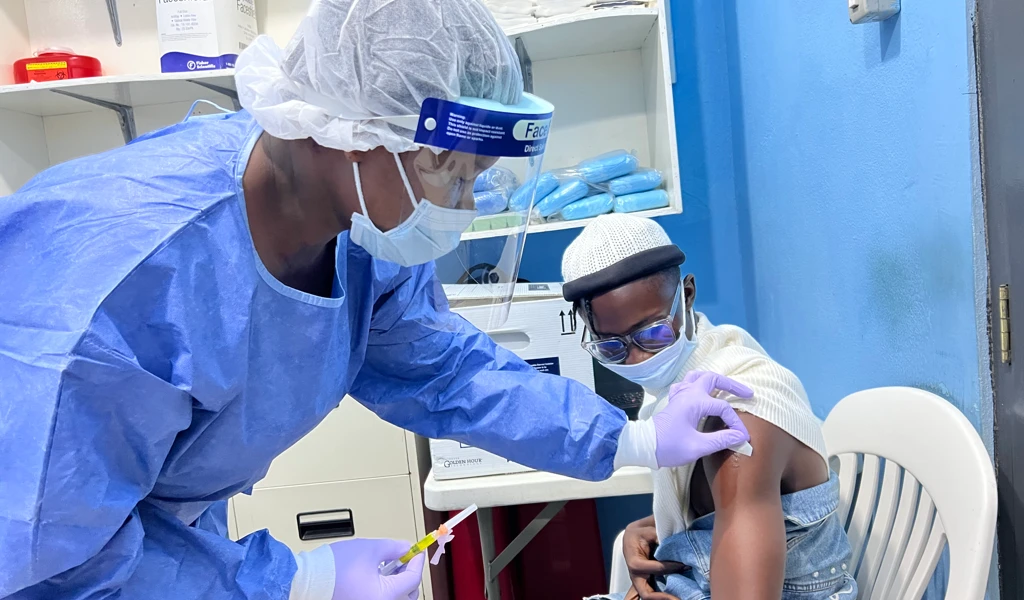CEPI, Belgian universities to partner to enhance global pandemic preparedness

Oslo, Norway, Leuven and Antwerp, Belgium, 16 January, 2023: CEPI, the Coalition for Epidemic Preparedness Innovations, has entered into strategic partnerships with the Belgian Universities KU Leuven and the University of Antwerp.
These organisations intend to collaborate in areas that will contribute to improved global pandemic preparedness, in particular with respect to KU Leuven's VirusBank Platform and the University of Antwerp's Vaccinopolis facility. CEPI's partnerships with world-renowned academic research hubs, like KU Leuven and the University of Antwerp, play an important part in the advancement of basic research required to boost global understanding of priority disease threats and the vaccine technology required to combat them.
KU Leuven is a research-intensive, internationally oriented university that performs both fundamental, basic and applied scientific research. Their VirusBank Platform is a recently established research laboratory with a mission to better prepare society for future viral epidemics and pandemics. The VirusBank platform aims to collect viruses that will then be used to develop innovative tests to gain more knowledge about these pathogens and also to facilitate the discovery and characterization of strategies against virus families with epidemic or pandemic potential. This aligns well with CEPI's approach to create a library of prototype vaccines for representative pathogens across multiple virus families. CEPI and KU Leuven intend to explore opportunities of mutual interest, including R&D related to Disease X.
The University of Antwerp recently opened Vaccinopolis, a unique state-of-the-art facility that encompasses a thirty-bed biosafety level (BSL) 3 quarantine unit for human challenge trials and an ambulant clinical trial unit and BSL 2 and BSL 3 laboratories. Through Vaccinopolis, the University aims to accelerate the evaluation of vaccine candidates and to participate in global efforts for better epidemic and pandemic preparedness. Vaccinopolis has launched in collaboration with Université libre de Bruxelles the European Plotkin Institute of Vaccinology. CEPI and the University of Antwerp intend to explore opportunities to advance clinical research tools in order to be prepared for future outbreaks.
CEPI's vision is for the world to be able to respond to the next Disease X with a safe and effective vaccine within 100 days. Achieving that goal could stop the next pathogenic threat in its tracks. The Belgian Government and R&D sector has played an important role in the global response to the COVID-19 pandemic and continues to play a pivotal part in bolstering future pandemic preparedness. CEPI's strategic partnership with KU Leuven and The University of Antwerp will help to strengthen our alliance with leading Belgian research centers and boost global pandemic preparedness.
The Belgian government invests 20 million € to establish the VirusBank Platform with the goal to be better prepared against viral epidemic and pandemic threats. The mission of the VirusBank Platform is to establish a state-of-the-art toolbox of assays and models for each of the virus families with epidemic and pandemic potential.
The VirusBank will operate in an international context. In this context, we are truly pleased to have signed this agreement with CEPI and to explore how to join forces in the battle against pandemic viral threats.
The collaboration with CEPI is an important and logical step for the University of Antwerp. Long before the corona pandemic broke out, our university was already investing thoroughly in researching candidate vaccines. In Antwerp, we've long been aware that the world needs to take big steps in order to prepare itself for major virus outbreaks. We've been working with international partners on this topic for years now. The fact that we can now also partner up with CEPI, an important international player, makes me proud.
- ENDS-
About CEPI
CEPI is an innovative partnership between public, private, philanthropic, and civil organizations, launched in 2017, to develop vaccines against future epidemics. Its mission is to accelerate the development of vaccines and other biologic countermeasures against epidemic and pandemic threats so they can be accessible to all people in need.
Prior to COVID-19, CEPI's work focused on developing vaccines against Ebola virus, Lassa virus, Middle East Respiratory Syndrome coronavirus, Nipah virus, Rift Valley Fever virus and Chikungunya virus — it has over 20 vaccine candidates against these pathogens in development. CEPI has also invested in new platform technologies for rapid vaccine development against unknown pathogens (Disease X).
CEPI has played a central role in the global response to COVID-19, supporting the development of the world's largest portfolio of vaccines against SARS-CoV-2 and its variants with a focus on speed, scale and access, as well as co-leading COVAX, the global initiative to deliver fair and equitable access to COVID-19 vaccines. CEPI is also the world's leading funder of R&D for broadly protective coronavirus vaccines which could protect against future variants of COVID-19 as well as other coronaviruses with epidemic and pandemic potential.
CEPI has embarked upon an ambitious US$3.5bn five-year plan — called CEPI 2.0 — to dramatically reduce or even eliminate the future risk of pandemics and epidemics. Central to the plan is CEPI's goal — supported by the G7 and G20 — to compress the time taken to develop safe, effective, globally accessible vaccines against new threats to just 100 days. Achieving this ‘100 Days Mission' would give the world a fighting chance of containing a future outbreak before it spreads to become a global pandemic. Read the plan at endpandemics.cepi.net/
Follow our news page for the latest updates. Follow us @CEPIvaccines, @DrRHatchett, and LinkedIn
About University of Antwerp
The University of Antwerp is a research university where pioneering, innovative research is conducted at an international level. Research and education are closely linked. Educational innovation is a constant focus, and special care is also taken to welcome and guide each of the 20,000 students spread across our nine faculties.
The University of Antwerp is not an island: we build bridges to secondary education, to industry and, by extension, to society as a whole. With over 6,000 members of staff, the University of Antwerp is one of the most important employers in Antwerp, Flanders' largest city.
www.uantwerp.be
About KU Leuven
KU Leuven is a research-intensive, internationally-oriented university. The Rega Institute has a long tradition in the field of virology. For example, one of the most widely used drugs for the treatment of infections with HIV and HBV, tenofovir, has been discovered at the Rega. Together with the Centre for Drug Design and Development (www.cd3.be) the Rega team is developing strategies to treat viral infections. For example, the pan-serotype dengue inhibitor that they developed is now in clinical studies at Johnson & Johnson. Their VirusBank Platform is a recently established research laboratory, funded by the Belgian government, with the mission to better prepare society for future viral epidemics and pandemics. To this end, the VirusBank platform will build a strategic collection of viruses and develop a large toolbox of innovative tests and models to gain more knowledge about these viruses. This will also allow to facilitate the discovery and characterization of preventive and therapeutic strategies against virus families with high epidemic or pandemic potential.
www.kuleuven.be
Media Contacts
CEPI
[email protected]
+44 7387 055214
University of Antwerp
Peter De Meyer
Spokesman
[email protected]
+32 476 20 07 54.
Pierre Van Damme
Professor
Centre for the Evaluation of Vaccination (CEV)
[email protected]
KU Leuven
KU Leuven Press Office
[email protected]
+32 16 32 40 08 (office) and +32 492 15 18 18 (mobile)
Professor Johan Neyts
KU Leuven Laboratory of Virology and Chemotherapy (Rega Institute)
[email protected]


